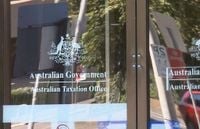The Australian Taxation Office (ATO) is facing significant backlash this month as it has begun issuing letters to property owners regarding potential omissions of rental income in their tax returns for the 2023 and 2024 income years. However, many recipients of these letters are reportedly receiving communications that reference properties they do not own, leading to confusion and distress among taxpayers.
The letters, which were sent out in March 2025, inform recipients that they may not have included all rental income for their properties and provide them with an opportunity to rectify their tax returns by April 22, 2025. The ATO’s communication warns that if the recipient is audited after this date and fails to report correctly, they may face penalties.
Tax agents have raised alarms about the accuracy of the ATO's data-matching efforts, voicing concerns that the letters have caused unnecessary anxiety among clients. Anthony Tripolino, a senior accountant at Tripolino Accountants, highlighted the issue in a LinkedIn post, indicating that some clients received letters listing properties they do not own. This has prompted worries about potential penalties and audits for properties that don’t even belong to them.
In his post, Tripolino noted that the errors could stem from data-matching issues between the records held by tax agents and those maintained by the ATO. He expressed frustration over the lack of clarity and the stress these letters have caused, stating, "It seems like the data matching this time is a total disaster. Someone should have sample tested 100 and matched back to the legal title holdings before sending out the letter en-masse. It would have highlighted a problem before they went out." This sentiment was echoed in the comments section of his post, where many other tax professionals reported similar experiences.
Tripolino recounted an instance where one of his clients received a letter, initially thinking it was an isolated incident. However, as more clients reported similar letters, he followed up with the tax department, which confirmed that they were aware of the issue. He received a standard response suggesting that clients consult their agents to ensure their data was accurate. Tripolino found this response puzzling, as he believed the ATO should have more reliable sources for data matching.
In light of the confusion, Tripolino advised his clients to ignore the letters, despite the potential risks associated with doing so. He pointed out that the language used in the letters, which included terms like "audit" and "penalty," could easily alarm taxpayers. "Where the problematic issue lies is in the language of the letter. When you throw the words ‘audit’ and ‘penalty’ around, that’s what the ordinary, reasonable person will home in on and raise their eyebrows at, so to speak," he explained.
Another concern raised by Tripolino is the limited time and resources available to tax agents to address these issues for their clients. He argued that the ATO needs to be more sensitive to the ramifications of sending out incorrect communications, particularly when they can lead to undue stress and confusion.
The ATO had previously announced plans to expand its data-matching compliance program for rental properties in 2024, aiming to crack down on taxpayers misreporting rental income and deductions. According to an ATO spokesperson, the recent mail-out campaign was intended to prompt individuals to review their rental income reporting based on data from property managers. The spokesperson acknowledged that while the ATO is working to improve the accuracy of this data, discrepancies can occur.
“While we continue to work with property managers to improve the correctness of this data, we understand that this data may not always be completely accurate. Therefore, the wording in the letters is intended to prompt individuals to review and amend if mistakes were made in their return,” the spokesperson stated. They also encouraged tax agents and taxpayers to contact the ATO if they believe the information is incorrect, noting that such instances have been in a small minority of the letters sent.
In a separate legal matter, Peter White, a former partner at EY, is currently facing serious allegations from the ATO regarding his role in promoting illegal tax schemes. White is being sued by the Commissioner of Taxation in the Federal Court for allegedly promoting three illegal tax schemes to seven clients over a five-year period ending in August 2021. He is accused of taking $700,000 in secret commissions related to these schemes.
The full hearing for White's case is set to commence on Monday, April 7, 2025, and is expected to last for two weeks. White is challenging the ATO’s personal assessment of his affairs, which adds another layer of complexity to the ongoing scrutiny faced by tax professionals in Australia.
The combination of the ATO's miscommunication regarding rental income and the serious allegations against White highlights the challenges and pressures within Australia's taxation system. As property owners navigate their obligations and tax agents strive to provide accurate guidance, the need for clarity and accuracy in communications from the ATO has never been more pressing.
In light of these developments, both taxpayers and tax professionals are left to ponder the implications of the ATO’s actions and the importance of reliable data in the tax reporting process. The outcomes of these situations could set significant precedents for future interactions between the ATO and taxpayers, as well as the accountability of tax professionals in managing their clients' affairs.





